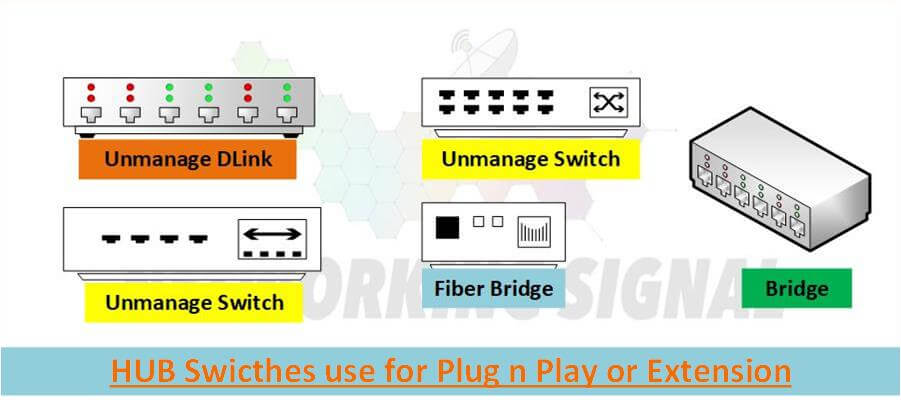A hub is a device that connects multiple devices or networks together. It allows communication between these devices or networks and can be used to expand the size of a network. Hubs come in a variety of sizes and types, from small, home-use devices to enterprise-level devices that can support thousands of users.
Hubs are one of the most common network devices and are often used to connect PCs and other devices in a small office or home network. Hubs can also be used to connect multiple networks together, such as connecting a home network to a corporate network.
What are the Advantages of Hub?

- Simplicity: Hubs are one of the simplest network devices and are easy to set up and use.
- Flexibility: Hubs can be used in a variety of networking applications and can be easily expanded as needed.
- Cost-effective: Hubs are relatively inexpensive compared to other network devices such as switches and routers.
What are the Disadvantages of Hub?
- Limited Bandwidth: Hubs have limited bandwidth and can become overloaded if too many devices are trying to use the hub at the same time.
- Security Concerns: Hubs do not provide any security features and all data is sent out to all connected devices, which can be a security concern in some applications.
- Lack of Advanced Features: Hubs do not offer any advanced features such as Quality of Service (QoS) or VLAN support.

